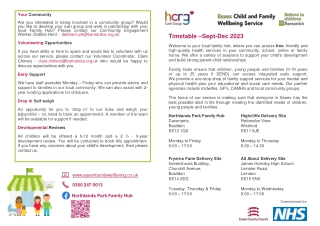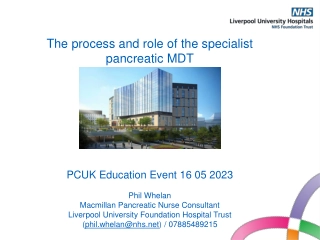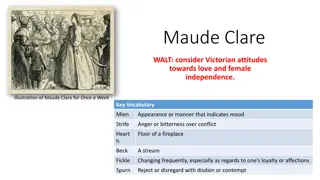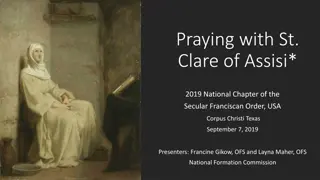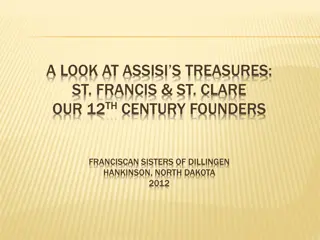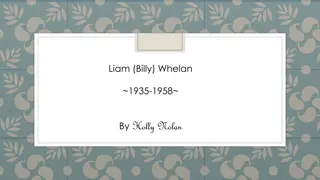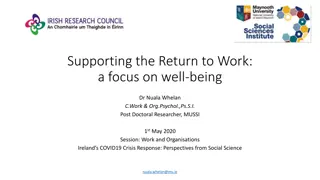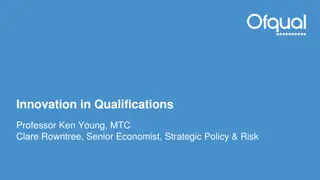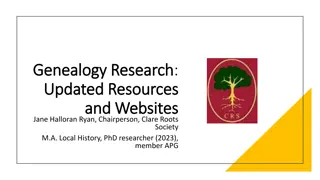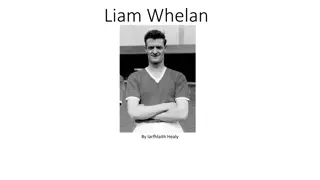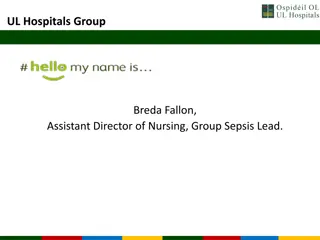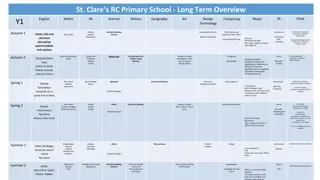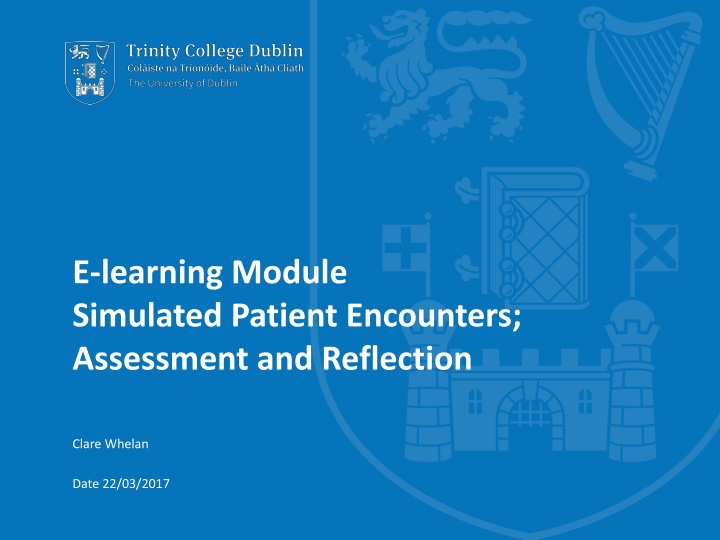
Enhancing Medical Students' Communication Skills Through E-Learning Modules
Explore the innovative e-learning module designed to improve medical students' communication skills through simulated patient encounters. Assess and reflect on communication abilities with expert feedback and reflective writing exercises over a 4-week online program. Quantitative and qualitative measures evaluate the module's effectiveness and acceptability.
Download Presentation

Please find below an Image/Link to download the presentation.
The content on the website is provided AS IS for your information and personal use only. It may not be sold, licensed, or shared on other websites without obtaining consent from the author. If you encounter any issues during the download, it is possible that the publisher has removed the file from their server.
You are allowed to download the files provided on this website for personal or commercial use, subject to the condition that they are used lawfully. All files are the property of their respective owners.
The content on the website is provided AS IS for your information and personal use only. It may not be sold, licensed, or shared on other websites without obtaining consent from the author.
E N D
Presentation Transcript
E-learning Module Simulated Patient Encounters; Assessment and Reflection Clare Whelan Date 22/03/2017
E-learning to enhance medical students ability to assess communication skills and use reflective practice Introduction to assessment of communication skills and reflective writing Video cases of Simulated Patient Encounters. Candidates access cases online, submit assessments of the communications skills observed and receive feedback from the experts. Candidates submit a reflection exercise following case observation
E-Learning Module Communications skills and Reflection The Online Module takes place over 4 weeks and is composed of 3 short blocks Aim: To assess acceptability and effectiveness of the learning module via quantitative and qualitative measures.
Online Module Block 1 Section 1.0 Introduction to the module Section 1.1 online completion of a Communication Skills Attitude Scale (CSAS)2 Section 1.2 Introduction to reflective practice Levels of reflection The Park exercise to introduce and improve quality of reflection
Block 1 continued Section 1.3 Access to first video recorded Simulated Patient Encounter Candidates complete modified Calgary Cambridge3 assessment of the communication skills observed. Candidates also submit online a reflection on the scenario observed within 5 days. Section 1.4 Candidate will receive feedback on their assessment and a mark and feedback on reflective exercise within 5 days.
Online Module Block 2 and 3 Blocks 2 and 3 follow the same format as the first block. Each Video case is only released once the new block begins.
E-Learning Module http://mymodule.tcd.ie
Data Collection Quantitative measures We will measure for any change in percentage score for each individual participant over time in 1. Reflective practice score 2. Communication skills assessment score1 as compared to a standardised assessment of the scenarios Qualitative measures will include 1. Attitudes towards communication skills using a valid and reliable measurement before and after, the module. 2. Candidates Views of the learning module upon completion.
Methodology Assessment scores will calculated using the Global Consultation Rating Scale and compared against that of standardised expert assessment scores. The candidates reflective exercise marks will be compared across all 3 blocks to determine if any significant differences can be identified. Is there an improvement in reflective score for each participant? Candidates will be asked to complete an evaluation of the online module at the end of the 5 weeks to assess acceptability of the e-learning module
References 1Silverman JD, Kurtz SM, Draper J (1998) Skills for Communicating with Patients. Radcliffe Medical Press (Oxford) 2Rees C, Sheard C, Davies S. The development of a scale to measure medical students attitudes towards communication skills learning: the communication skills attitude scale (CSAS). Med Educ. 2002;36:141-7. 3Burt et al. (2014 ) Assessing communication quality of consultations in primary care: initial reliability of the Global Consultation Rating Scale, based on the Calgary-Cambridge Guide to the Medical Interview, BMJ open http://bmjopen.bmj.com/content/4/3/e004339.full

